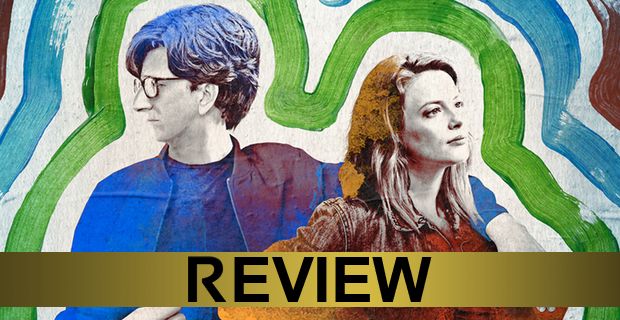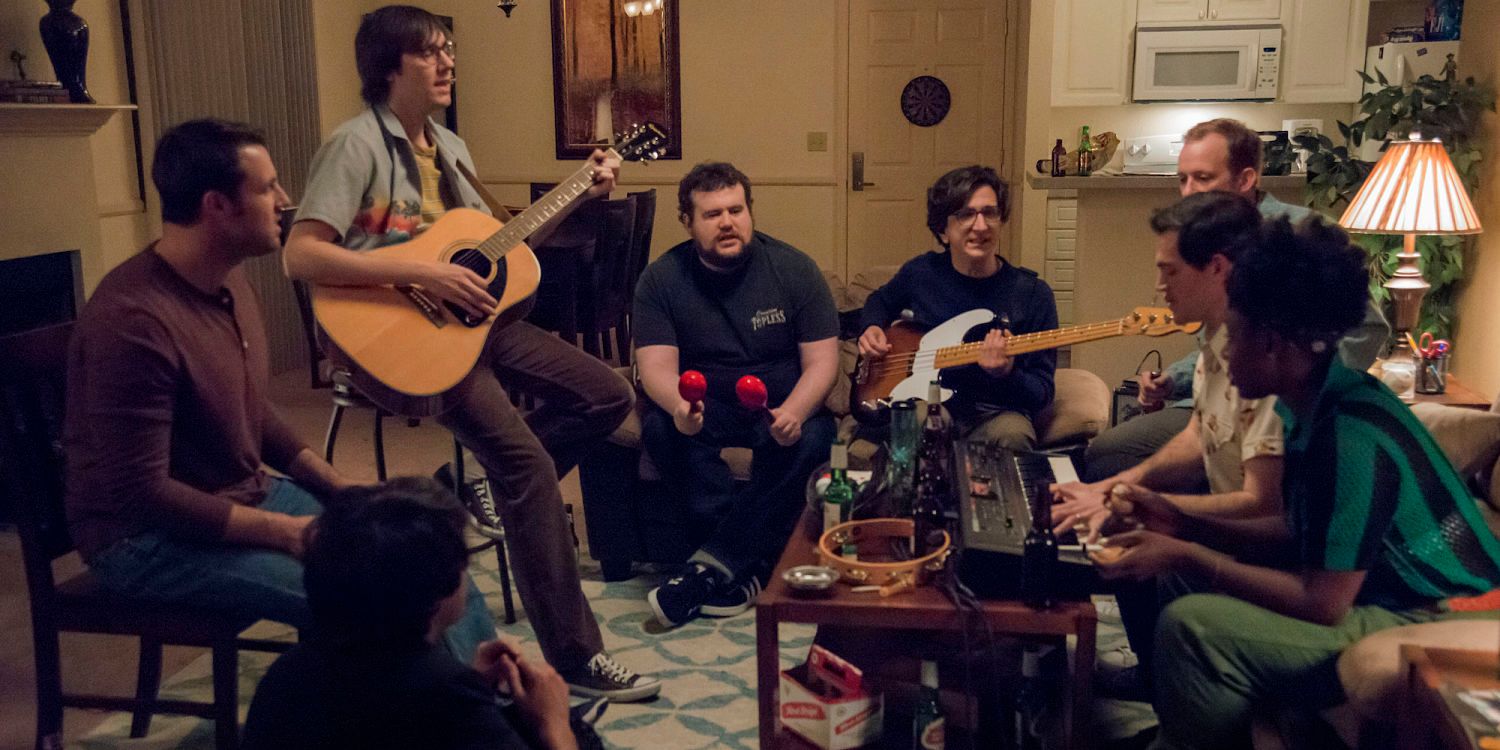With its willingness to break from Hollywood trends and outright rebuke romantic comedy standards, Netflix's Love became a hero in its first season for TV viewers looking for something a little different, or more directly, a reflection of something real. That's not to say the series never toyed with convention, but its authentic storytelling approach was certainly a breath of fresh air, as it quickly established itself as an anti-rom-com of sorts.
With the show's well-defined mission and approach to tackling modern relationships, we came into Love season 2 with clear expectations -- which were quickly reinforced by the season premiere. It was clear that Mickey (Gillian Jacobs) and Gus (Paul Rust) would face the obvious relationship obstacles inherent with their own individual personality flaws. Before the disastrous events of the season's final episodes unfolded, we could have easily predicted that Gus's clinginess and co-dependence would slowly push Mickey away. And we also could have guessed that Mickey would have eventually fallen off the wagon in one way or another. But, as is often the case with real life couples, what we didn't know was if things would work out in the end or not.
Of course, with Dustin (Rich Sommer) storming into Gus's apartment prepared to crush him with the truth about his own rekindled relationship with Mickey in the final minutes of the finale, it seemed like an explosive confrontation and a breakup were inevitable to capping off the season. However, Love once again went another way with an ending that was both surprising and ambiguous.
On the one hand, the ending seems to serve as a moment of monumental growth for Mickey, who's finally beginning to learn from her mistakes. When she commits to an exclusive relationship with Gus, it's a big deal. It's one of the first times she's actually appeared sincere in the series, and it could represent a profound decision in her life's direction. However, there's also the sense that she just can't bring herself to hurt Gus, and is using this relationship proposal to distract from the ugly truth that she knows will rear its head eventually.
Ultimately, this type of ambiguity is what continues to make the series so compelling while underscoring its thematic crux. Like in real life, Love's version of a modern relationship is complicated, messy, frustrating, and addictive. It's this honest portrayal that makes the show relatable and watchable, but also cringe-inducing at times, as we anticipate the next setback that could threaten to knock Mickey and Gus's relationship off the rails.
But even if its lead characters aren't completely sure of themselves, the series itself felt a little more confident and assured in its approach this season. In its sophomore run, Love certainly tackled more serious issues (Mickey's addictions), and did so with honesty, but it also benefitted from the type of narrative patience afforded by a streaming platform like Netflix. Knowing that they had 12 episodes to tell chapter 2 of their story, series creators Judd Apatow, Paul Rust, and Lesley Arfin weren't forced to inject conflict into every episode, instead letting the trajectory of Gus and Mickey's relationship take on a natural progression that seemed to hit emotional peaks and valleys at precisely the right moments.
What's more, the show didn't sacrifice any laughs as Gus and Mickey's relationship became more serious. By the end of the season, Love may have seemed a little drama heavy, but the show managed to squeeze plenty of comedic value out of its secondary characters and notable guest spots. Standouts included returning players such as Claudia O'Doherty as Mickey's ever-optimistic roommate Bertie, Mike Mitchell as Bertie's dim-witted but well-meaning boyfriend Randy, and Iris Apatow as teen actor and Gus's apathetic pupil Arya. Meanwhile, one of the season's biggest highlights surprisingly came from David Spade's turn as Arya's father, which included a hilarious dynamic between him, his daughter, and soon-to-be divorcee (Dawn Forrester).
Further solidifying its stature as the antidote to the typical Hollywood rom-com, Love season 2 managed to improve upon season 1 in just about every way, while raising plenty of interesting questions as to where the show might be headed next. With Gus and Mickey set to become an exclusive, committed couple in season 3, will we meet more of their family members (apart from Mickey's father, played by the incomparable Daniel Stern)? Will the two get closer to becoming engaged, or will their relationship fall apart when the truth about Mickey and Dustin is revealed? With so much more territory in their relationship to explore, there are a number of different directions Love could take viewers next year.
Next: Love Season 2 Premiere Review & Discussion
Love season 3 is expected to premiere on Netflix in early 2018.



